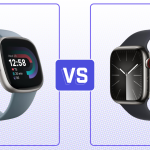A new lawsuit is taking on Apple’s data collection practices in the wake of a recent report by independent researchers who found Apple was continuing to track consumers in its mobile apps, even when they had explicitly configured their iPhone privacy settings to turn tracking off. In a proposed class action lawsuit, plaintiff Elliot Libman is suing on behalf of himself and other impacted consumers, alleging that Apple’s privacy assurances are in violation of the California Invasion of Privacy Act.
As reported last week by Gizmodo, app developers and independent researchers Tommy Mysk and Talal Haj Bakry discovered that Apple was still collecting data about its users across a number of first-party apps even when users had turned off an iPhone Analytics setting that promises to “disable the sharing of Device Analytics altogether.” In their tests, the researchers examined Apple’s own apps including the App Store, Apple Music, Apple TV, Books and Stocks and found that disabling this setting as well as other privacy controls didn’t impact Apple’s data collection.
The App Store, for example, was continuing to track information like what app users tapped on, what they searched, what ads they saw, how long they looked at a given app’s page, and how the app was discovered, among other things. The app also then sent details that included ID numbers, type of phone, screen resolution, keyboard languages and more — information that could be used in device fingerprinting.
According to Apple’s device settings, if a user turns off either iPhone or iPad Analytics, a message informs the user that Apple will “disable [the sharing of] Device Analytics altogether.” In addition, users are left to believe that Apple would stop collecting their data if they turn off other settings, like “Allow Apps to Request to Track” or “Share [Device] Analtyics.” Despite configuring these privacy controls, the lawsuit states that Apple “continues to record consumers’ app usage, app browsing communications, and personal information in its proprietary Apple apps,” specifically the App Store, Apple Music, Apple TV, Books and Stocks.
The complaint goes on to detail the researchers’ findings, specifying what data was being collected. Stocks, for instance, was tracking users’ watchlists, the names of stocks they viewed and searched for, and news articles they saw in the app and more. And most of the apps shared consistent ID numbers, the suit states, which would allow Apple to track users across its apps.
In light of these new findings, the lawsuit alleges that Apple’s assurances and promises regarding privacy are “utterly false.” It also pointed out that this level of data collection was out of line with standard industry practices as both Google Chrome and Microsoft Edge browser could not collect the same sort of data if their own analytics settings were turned off.
“The data Apple surreptitiously collects is precisely the type of private, personal information consumers wish and expect to protect when they take the steps Apple sets out for users to control the private information Apple collects,” the complaint states. “…There is no justification for Apple’s secret, misleading, and unauthorized recording and collection of consumers’ private communications and app activity.”
The plaintiff is looking to have the lawsuit certified as a class action and is seeking compensatory, statutory, and punitive damages in addition to other equitable monetary relief.
Apple has not responded to a request for comment.
If accurate, this sort of data collection would raise questions about Apple’s implementation of Apple Tracking Transparency (ATT) which Apple said would give users more control over how their app data was used in personalized advertising. As critics have noted, ATT hurt the advertising businesses of major tech companies, like Meta and Snapchat, while Apple’s own advertising market share increased.
A September 2022 report by InMobi’s Appsumer found that Apple’s advertising business had benefitted from the launch of ATT, allowing the Cupertino tech giant to join the Facebook (now Meta)-Google advertising duopoly by growing its adoption by 4 percentage points to reach 94.8% year-over-year, while Facebook’s adoption dropped 3% to 82.8%. Meta, of course, has long argued that Apple’s ATT would cut into its ad revenues, forecasting it would have a $10 billion impact in 2022.
In addition, Apple recently rolled out new ad slots on the App Store to capitalize on its improved stance in the ad industry. Soon, many developers became distressed to find that those ad slots were being sold to gambling app makers and others they felt unsuitable to be marketed alongside their own.
Apple has also been facing increased scrutiny over its practices, following the launch of ATT and the growth of its App Store business, which has given Apple significant power in the app market overall. The company is currently battling Epic Games in a lawsuit over App Store fees and Apple’s alleged antitrust behavior, which has now headed to an appeals court. Plus, the U.S. Department of Justice is said to be in the early stages of drafting an antitrust lawsuit against Apple.
This latest lawsuit, though currently smaller in scope than others, has the potential for larger implications if the researchers’ findings turn out to be correct and are held up in court.
Case 5:22-cv-07069 by TechCrunch on Scribd
Apple faces new lawsuit over its data collection practices in first-party apps, like the App Store by Sarah Perez originally published on TechCrunch






